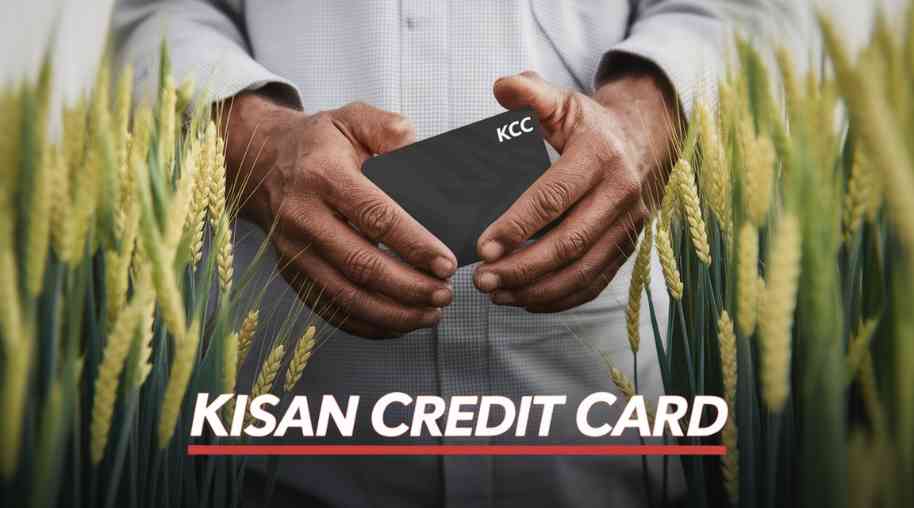KCC Full Form-Kisan Credit Card
by Shashi Gaherwar
0 2403
Kisan Credit Card (KCC): A Comprehensive Guide for Farmers in India
Introduction
Agriculture is the backbone of India’s economy, supporting millions of farmers. However, limited access to affordable credit hinders investments in seeds, fertilizers, and equipment. Launched in 1998 by the Government of India, the Kisan Credit Card (KCC) scheme, implemented by NABARD, provides timely and hassle-free credit to farmers. This article covers KCC’s features, benefits, eligibility, application process, and challenges.

What is the Kisan Credit Card (KCC) Scheme?
The Kisan Credit Card (KCC) is a credit facility offering short-term and long-term loans for agricultural and allied activities. Introduced by the Reserve Bank of India (RBI) and NABARD, it reduces reliance on moneylenders by providing institutional credit at lower interest rates, supporting crop production, post-harvest costs, and emergency needs.
Key Features of the Kisan Credit Card
- Instant Credit Access: Offers a revolving credit facility for agricultural expenses.
- Affordable Interest Rates: Lower rates with interest subvention for timely repayment.
- Flexible Repayment: Repayment aligned with harvesting periods.
- Crop Insurance: Coverage under Pradhan Mantri Fasal Bima Yojana (PMFBY).
- Allied Activities: Funds for dairy, poultry, fisheries, and more.
- ATM-Enabled Card: Provides easy cash withdrawals and transactions.
Eligibility Criteria for KCC
- Individual Farmers: Including tenant farmers and sharecroppers.
- Groups: Self-help groups (SHGs) or joint liability groups (JLGs) in farming.
- Allied Farmers: Those engaged in dairy, poultry, or fisheries.
- Small Farmers: Practicing horticulture or allied activities.
How to Apply for a Kisan Credit Card?
- Step 1: Visit a Bank
- Approach commercial banks, regional rural banks (RRBs), or cooperative banks (e.g., SBI, PNB).
- Step 2: Fill Application Form
- Obtain form from the bank or website; provide personal, land, and cropping details.
- Step 3: Submit Documents
- Identity Proof: Aadhaar, PAN, or Voter ID.
- Address Proof: Ration Card or Electricity Bill.
- Land Proof: Land records or tenancy agreements.
- Bank Details: For fund disbursal.
- Step 4: Loan Processing
- Bank assesses creditworthiness and sets loan limit.
- Step 5: Avail Credit
- Receive KCC and ATM card; withdraw funds and repay within the stipulated period.
Interest Rates & Repayment under KCC
- Interest Rate: Starts at 4% per annum, varying by bank and loan amount.
- Interest Subvention: Timely repayment reduces the rate to 4% with a 3% subvention.
- Repayment Period:
- Short-term loans: Within 12 months.
- Long-term loans: Up to 5 years.
Benefits of Kisan Credit Card
- Financial Inclusion: Reduces reliance on moneylenders with institutional credit.
- Low Interest Rates: Offers subsidized loans with flexible repayment.
- Quick Process: Minimal documentation and fast approval.
- Insurance Benefits: Crop insurance protects against natural calamities.
- Multi-Purpose Credit: Covers crop cultivation, post-harvest, and allied activities.
Challenges of the KCC Scheme
- Lack of Awareness: Many farmers are unaware of KCC benefits, relying on informal sources.
- Complex Processes: Lengthy bank procedures deter small farmers.
- Delayed Disbursement: Bureaucratic delays hinder timely credit access.
- Fraudulent Practices: Misuse of KCC benefits by intermediaries.
The Kisan Credit Card (KCC) is a vital tool for Indian farmers, offering affordable and flexible credit to enhance agricultural productivity. By fostering financial inclusion, it supports rural economic growth.
Further Learning Resources
If you’re passionate about building a successful blogging website, check out this helpful guide at Coding Tag – How to Start a Successful Blog. It offers practical steps and expert tips to kickstart your blogging journey!
For dedicated UPSC exam preparation, we highly recommend visiting www.iasmania.com. It offers well-structured resources, current affairs, and subject-wise notes tailored specifically for aspirants. Start your journey today!

Share:









Comments
Waiting for your comments